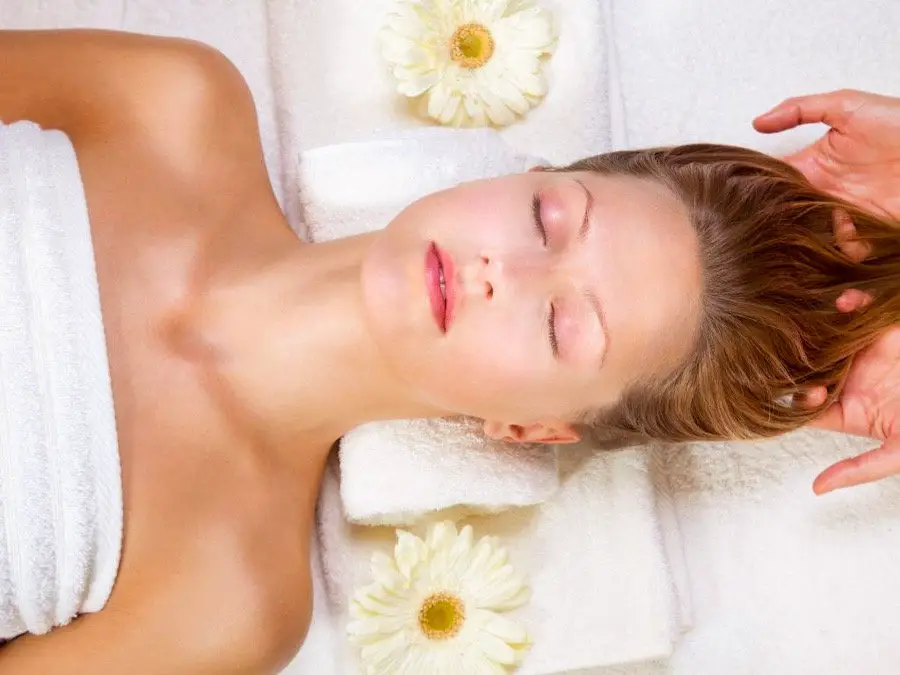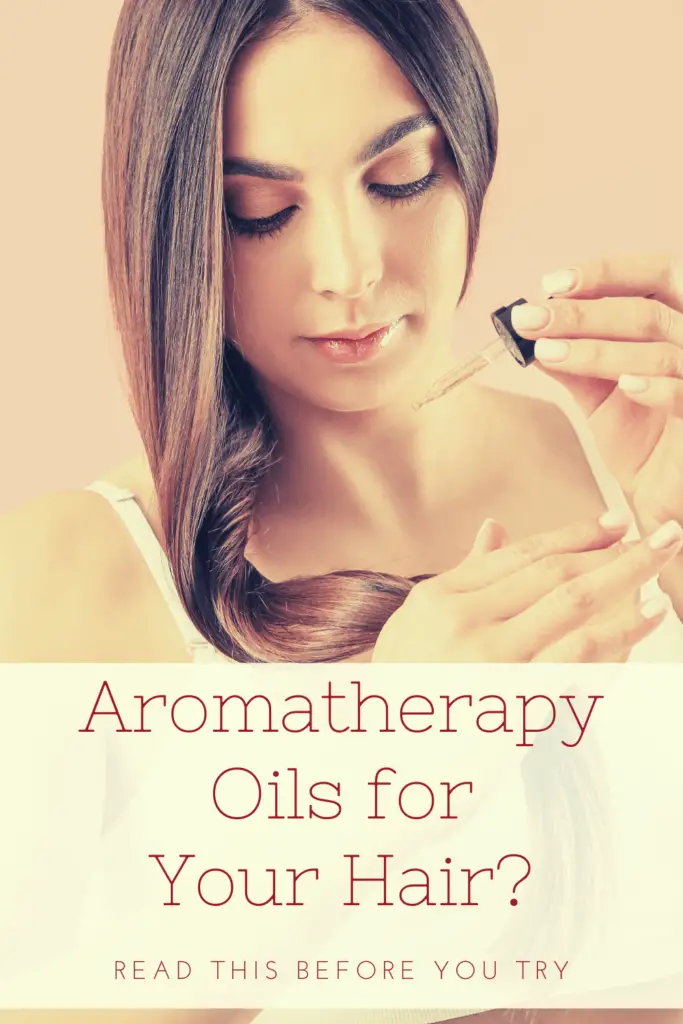Maybe you are lying down on the massage table, enjoying the beautiful fragrances of your aromatherapy massage. You feel the capable hands of the massage therapist working wonders on your neck and going all the way up to your scalp. And you wonder: are aromatherapy oils good for my hair? Or maybe you are just struggling with some hair problem (stunted hair growth, dandruff, hair breakage) that’s preventing you from enjoying your beautiful hair the way you deserve. You’ve heard about the incredible benefits of aromatherapy and want to know if aromatherapy oils can be used on your hair as well.
Aromatherapy oils can be used on your hair and scalp. In fact, these oils contain chemicals that can significantly improve the health state of your hair and even promote hair growth. Some precautions should be taken to ensure a safe and relaxing experience, such as properly diluting the oils and checking for allergies.
For a long time, I struggled with dry hair, and no matter what I did or which product I used, the problem would not go away. Then one day, the light shone on me, and I discovered aromatherapy oils and their immense benefits on hair health.
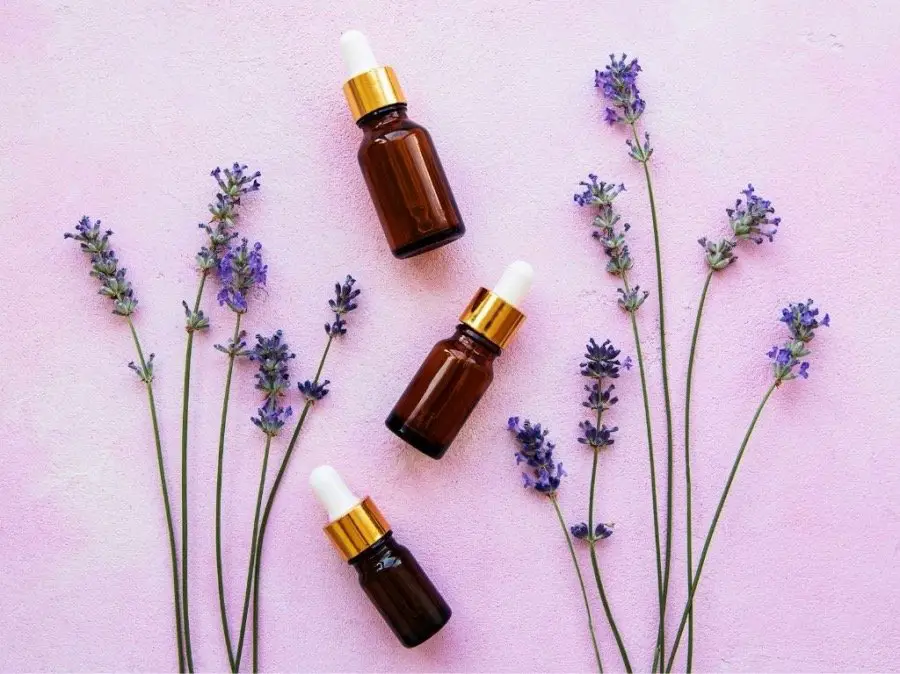
Aromatherapy oils work like magic. These potent oils are extracted from plants using a variety of methods such as evaporation and distillation. While they’re popularly revered for their aromatic qualities, they also can significantly improve your hair’s health and look. Each essential oil has specific properties that serve different purposes in hair nourishment; hence it is important to analyze different oils before finding the one that resonates with you.
Table of Contents
Do Aromatherapy Oils Have Any Side Effects or Risks?
Just like everything in life, essential oils have a bit of a downside too. These oils are generally safe when diluted with carrier oils, such as coconut oil, almond oil, or grapeseed oil. However, allergic reactions such as irritation, itching, or swelling do sometimes occur even after dilution.
If you would like to know more about a carrier oil that can be used for whole-body massage, check our article ‘Relaxing Massage with Grapeseed Oil. Is It a Good Idea?’.
Be sure to avoid any essential oil or carrier oils if you are allergic to them or to any of the components in the products. If you experience problems such as breathing issues, changes in consciousness, headache, or dizziness, seek medical treatment immediately.
In addition, research by the National Association for Holistic Aromatherapy shows that some aromatherapy oils, like peppermint and sage oils, should not be utilized by pregnant women or breastfeeding mothers.
Aromatherapy Oils that Are Good for Your Hair
Let’s dive in and look at some of the common aromatherapy oils you can use for your hair:
Rosemary Oil
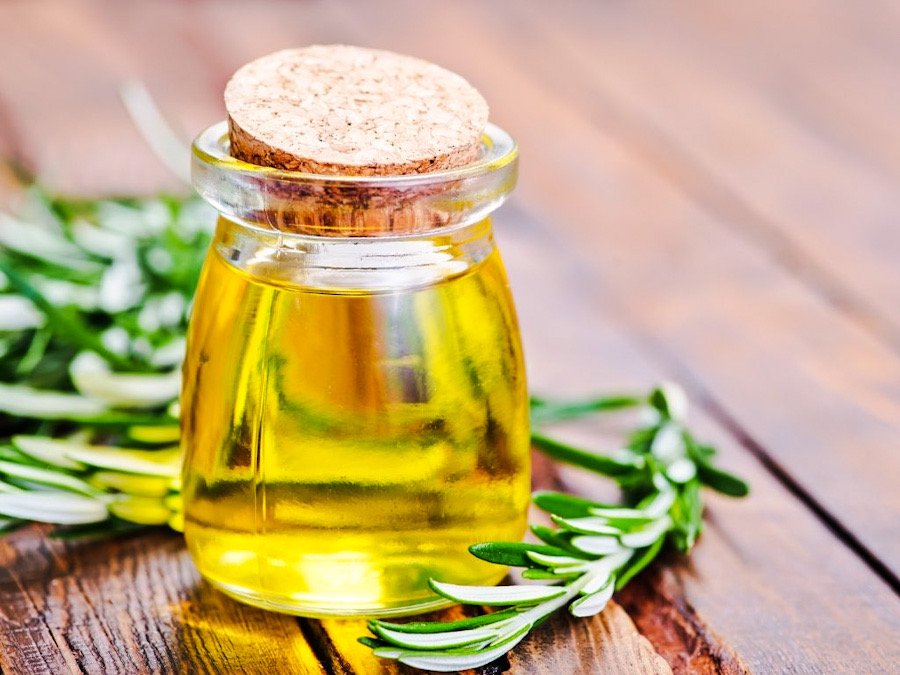
I know you’re used to having rosemary in the kitchen, but after this, you might want to reconsider that and have some rosemary in the bathroom, too. This is because using a few drops of rosemary oil on your hair before a shower can work wonders. In a study conducted in 2015 and published in SKINmed Journal, this aromatherapy oil was found to have unique capabilities for preventing hair loss. In another clinical study published in BMJ, it was reported that massaging this oil into the scalp helps to stimulate hair growth.
The ability of rosemary oil to repair, regulate and stimulate cells makes it an effective option for promoting hair growth. This is due to the fact that it regulates the oily discharge on the hair follicles giving room for hair growth.
Application: Blend 2 drops of rosemary oil with a carrier oil, like almond or coconut oil, and gently massage it on your scalp. Allow it to rest for about 10 minutes, and then wash the oil out with shampoo. Do this procedure about twice a week.
Cedarwood Oil
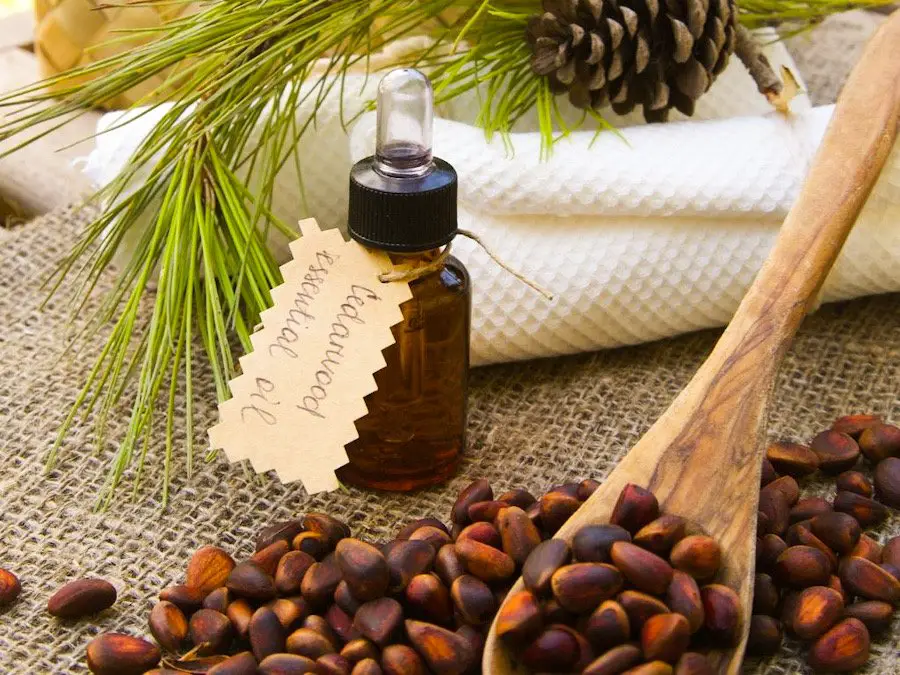
If you’re having problems with your scalp, cedarwood is your go-to-go essential oil. Once it’s applied to the scalp, it stimulates and enhances circulation, which reduces the dryness in the scalp keeping it healthy and strong.
Cedarwood balances the glands that produce oil in the scalp, thus improving the health of your strands. Also, it has antibacterial and antifungal properties making it an effective option for helping treat dandruff and hair loss. And not just that, this essential oil has also been found effective against alopecia areata when combined with rosemary and lavender.
Application: Blend 2 drops of cedarwood oil with two tablespoons of coconut oil, and then massage it on your scalp using your fingers. Let the oil rest on your scalp for about 30 minutes, and then wash it out. Due to sensitivity issues, if you’re using cedarwood for the first time, it’s recommendable that you test it on a patch first to ensure it’s not irritable on your skin. Safety is always first!
Lavender Oil
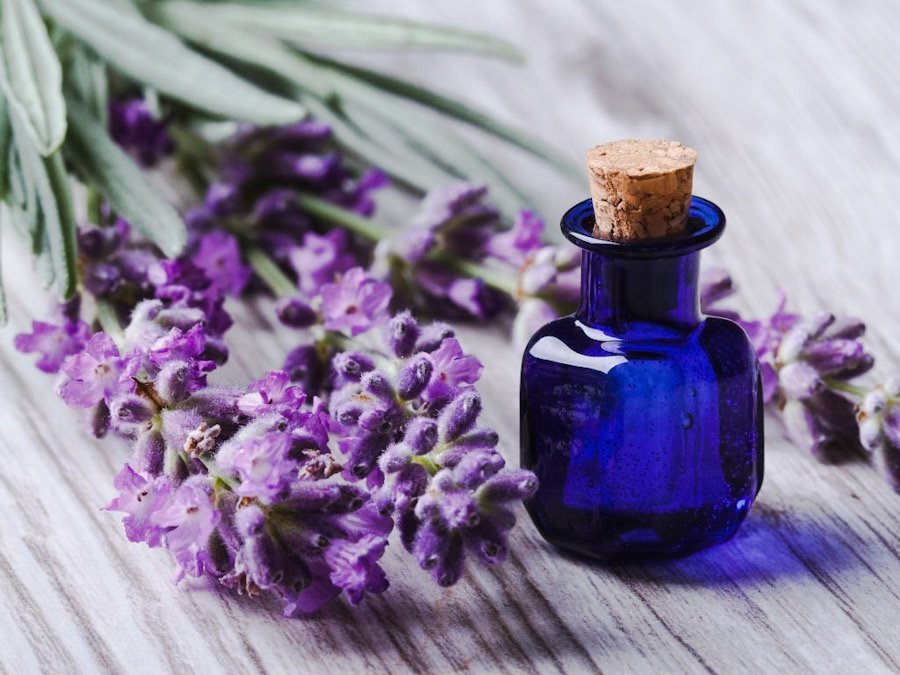
Research suggests that lavender has antimicrobial and antifungal properties that help ensure your follicles and hair shafts are free from any bacteria, fungi, viruses, and other sources of infections that might prevent hair growth. Thanks to its sedative properties, this essential oil soothes the scalp leaving a gentle effect on your skin.
The majority of people that use lavender oil report that it has a calming scent that can improve your mood. Therefore, once you get hooked on it, there is no turning back. And it’s not just limited to the hair or mood; you can also use it to help cure various skin problems, making it a must-have for anyone who is into healthy living and self-improvement.
Application: Mix a few drops of lavender oil with a carrier oil of your choice, and then apply the mixture onto your scalp. Allow the oil to rest on your skin for about 10 minutes, and then wash it out. You can then proceed to shampoo your hair. Repeat this procedure as many times as you want in a week.
Peppermint Oil

If you have used peppermint oil on your neck or temples, you’re aware of the thrill that this aromatherapy oil can produce. But trust me, that is nothing compared to the wonders it does to your scalp. Apart from the fresh and uplifting aroma that this oil generates, it also comes with a cooling effect that leaves your skin happy.
If you’re struggling with stunted hair growth, you cannot go wrong with peppermint oil. A study conducted to ascertain the impact of peppermint oil on hair growth showed that it stimulates the hair follicles, promoting hair growth.
Application: Blend 2 drops of peppermint aromatherapy oil with any carrier oil of your choice, then apply it gently on your scalp. Leave it for a maximum of 5 minutes, and then wash it thoroughly using a shampoo and a hair conditioner.
Tea Tree Oil
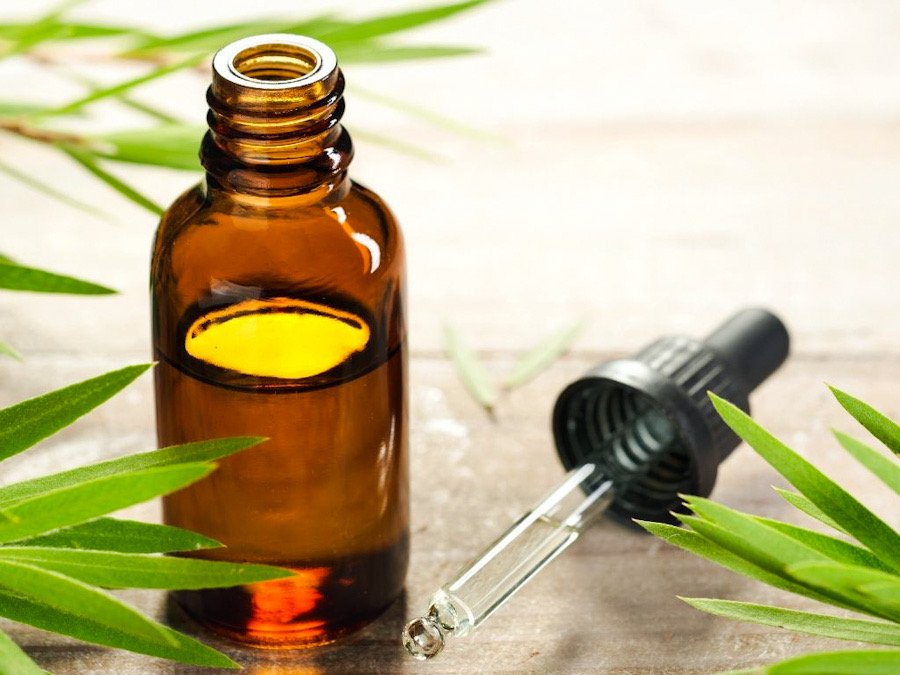
Many people use tea tree oil solely to help heal breakouts, not knowing that it can also work wonders for their hair too. Tea tree aromatherapy oil has cleansing, antimicrobial, and antibacterial qualities, and this explains why it’s a common ingredient in most scalp-health hair products, especially the ones that treat dandruff.
Many people don’t take dandruff seriously, unaware that it has severe effects if left untreated for long. When the dandruff flakes accumulate on the scalp, they can combine with the skin’s natural oils and clog the hair follicles. Once the hair follicles are clogged, I hate to break it down for you, but your chances of experiencing hair loss are high. Tea tree essential oil helps regulate the sebaceous glands so that they don’t produce excessive natural oil on the skin. It also helps to fight some fungi, bacteria, and viruses on the scalp.
Application: Take several drops of tea tree aromatherapy oil, mix it with your shampoo or conditioner and use it daily. Alternatively, you can blend 2 to 3 drops of this tea tree oil with your preferred carrier oil and leave it on your scalp for at least 15 minutes before drying it out.
The Takeaway

Aromatherapy oils can stimulate hair growth and help with some of the common hair health problems. Since some of these oils are highly concentrated, don’t forget to mix them with appropriate amounts of carrier oils, shampoos, or conditioners. Also, check for allergies to any of the essential oils themselves, the carrier oils, or any other components in these products.
After applying the oil to the scalp, it is advisable to massage it gently to allow the skin to absorb it. Also, it is important to note that you may need to make repeated applications before you can start to see the desired results.
Now you know how aromatherapy oils can be used on your hair and scalp! Enjoy!

